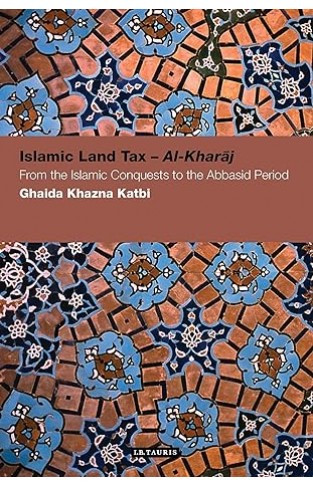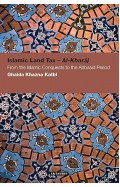Islamic Land Tax - Al-Kharaj - From the Islamic Conquests to the Abbasid Period
By: Ghaida Khazna Katbi
-
Rs 4,250.00
Due to constant currency fluctuation, prices are subject to change with or without notice.
Islamic Land Tax - Al-Kharaj - From the Islamic Conquests to the Abbasid Period
By: Ghaida Khazna Katbi
Rs 4,250.00 Ex Tax :Rs 4,250.00
Zubin Mehta: A Musical Journey (An Authorized Biography)
By: VOID - Bakhtiar K. Dadabhoy
Rs 840.00 Rs 1,050.00 Ex Tax :Rs 840.00
The Greatness Mindset - Unlock the Power of Your Mind and Live Your Best Life Today
By: Lewis Howes
Rs 4,895.00 Ex Tax :Rs 4,895.00
How to Understand and Deal with Health Anxiety - Everything You Need to Know to Manage Health Anxiety
By: Katy Georgiou
Rs 3,295.00 Ex Tax :Rs 3,295.00
Decisionscape - How Thinking Like an Artist Can Improve Our Decision-Making
By: Elspeth Kirkman
Rs 9,995.00 Ex Tax :Rs 9,995.00
Where Research Begins - Choosing a Research Project That Matters to You (and the World)
By: Thomas S Mullaney
Rs 8,395.00 Ex Tax :Rs 8,395.00
The Interior Design Handbook - Furnish, Decorate, and Style Your Space
By: Frida Ramstedt
Rs 8,195.00 Ex Tax :Rs 8,195.00
Beyond Twilight Explore The World Of vampire
By: Manuela Dunn-Mascetti
Rs 276.00 Rs 345.00 Ex Tax :Rs 276.00
Dr Sigmundus: The Cracked Mirror The Promises of Dr Sigmundus
By: Brian Keaney
Rs 2,095.00 Ex Tax :Rs 2,095.00
The Greatness Mindset - Unlock the Power of Your Mind and Live Your Best Life Today
By: Lewis Howes
Rs 4,895.00 Ex Tax :Rs 4,895.00
How to Understand and Deal with Health Anxiety - Everything You Need to Know to Manage Health Anxiety
By: Katy Georgiou
Rs 3,295.00 Ex Tax :Rs 3,295.00
Decisionscape - How Thinking Like an Artist Can Improve Our Decision-Making
By: Elspeth Kirkman
Rs 9,995.00 Ex Tax :Rs 9,995.00
Where Research Begins - Choosing a Research Project That Matters to You (and the World)
By: Thomas S Mullaney
Rs 8,395.00 Ex Tax :Rs 8,395.00
The Interior Design Handbook - Furnish, Decorate, and Style Your Space
By: Frida Ramstedt
Rs 8,195.00 Ex Tax :Rs 8,195.00
No recently viewed books available at the moment.
Zubin Mehta: A Musical Journey (An Authorized Biography)
By: VOID - Bakhtiar K. Dadabhoy
Rs 840.00 Rs 1,050.00 Ex Tax :Rs 840.00
Islamic Land Tax - Al-Kharaj - From the Islamic Conquests to the Abbasid Period
By: Ghaida Khazna Katbi
Rs 4,250.00 Ex Tax :Rs 4,250.00
The Greatness Mindset - Unlock the Power of Your Mind and Live Your Best Life Today
By: Lewis Howes
Rs 4,895.00 Ex Tax :Rs 4,895.00
How to Understand and Deal with Health Anxiety - Everything You Need to Know to Manage Health Anxiety
By: Katy Georgiou
Rs 3,295.00 Ex Tax :Rs 3,295.00
Decisionscape - How Thinking Like an Artist Can Improve Our Decision-Making
By: Elspeth Kirkman
Rs 9,995.00 Ex Tax :Rs 9,995.00
Where Research Begins - Choosing a Research Project That Matters to You (and the World)
By: Thomas S Mullaney
Rs 8,395.00 Ex Tax :Rs 8,395.00
The Interior Design Handbook - Furnish, Decorate, and Style Your Space
By: Frida Ramstedt
Rs 8,195.00 Ex Tax :Rs 8,195.00














-120x187.jpg?q6)















-120x187.jpg?q6)



